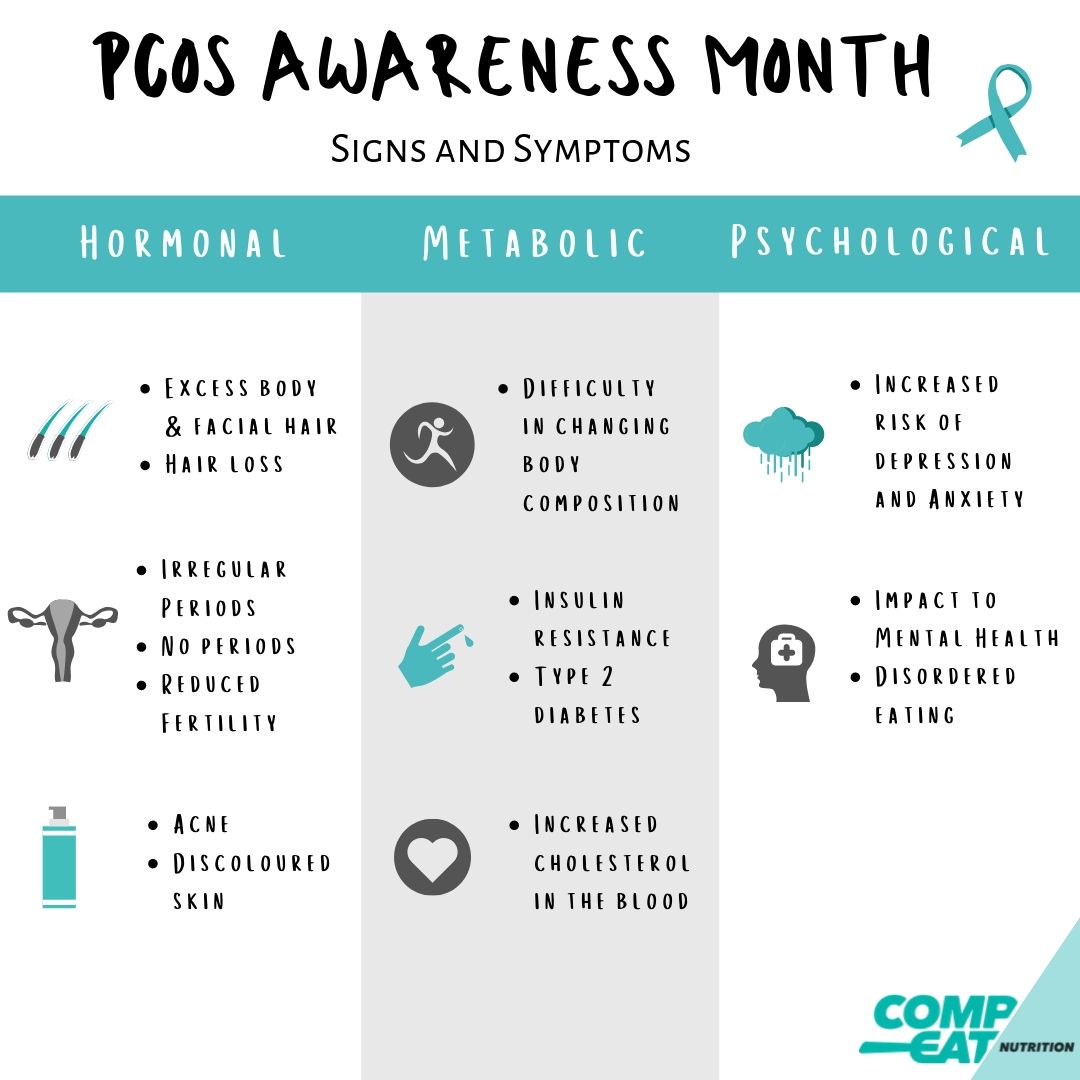Nutrition for PCOS
Polycystic Ovarian Syndrome (PCOS) is a common hormonal condition among women between the ages of 18 and 45. Polycystic translates to “many cysts”, relating to fluid-filled sacs which litter the ovaries.
With 1 in 10 women diagnosed with PCOS, it comes as no surprise that you or someone you know may be living with this condition. However, not everyone is the same. Someone diagnosed with PCOS may not even have cysts on their ovaries!
This is because the diagnosis of PCOS is based on having any two of these three major factors:
- No ovulation causing irregular cycles or a complete lack of periods
- Excess male hormone production (e.g. testosterone) which can be detected through blood tests
- Cysts on the ovaries as detected via an ultrasound
The cause/s of PCOS is still not fully understood, but certain genetics do play a role. PCOS was originally thought to be a fertility issue, however it is now known to be much more complex and associated with several other symptoms:

If left undiagnosed, PCOS can lead to a range of long-term health consequences including obesity, high blood pressure, heart disease, diabetes, cancers, infertility, irregular bleeding and mental health disorders.
Unfortunately, there is currently no cure for PCOS. Management instead focuses on treating or reducing the severity of symptoms.
While it’s important to be aware of the symptoms and possible health risks, it’s just as important to note that not everyone with PCOS will experience every symptom and with the same severity. The symptoms and their severity can vary not only between the individual, but also change at different ages.
However, adaptations to nutrition, exercise and lifestyle can help reduce symptoms.
Nutrition Strategies
1. Obtain a strong Nutrition Foundation
Regularly consume a wide variety of fruits & vegetables, lean meats, quality grains, legumes, dairy products and healthy fats as part of your daily intake. Also choosing foods lower in glycaemic index (GI) and having adequate amounts of protein have been found to help manage insulin resistance.
Although, you may have heard all of this before, studies have found that women with PCOS tend to consume diets that are high in fat and too low in fibre and other important nutrients. Eating a healthy, balanced diet is such an important first step.
2. Weight Management
First of all know that PCOS isn’t caused by weight (and not all people with PCOS are overweight!). However striving for continual health improvements, that may lead to weight change in some, can help manage many of the symptoms and risk factors associated with PCOS.
3. Meal Quality
PCOS is related closely to insulin resistance and therefore shares many of the same recommendations associated with diabetes. Therefore women with PCOS may benefit from aiming for lower carbohydrate load at meals and snacks (higher focus on a range of veggies/salad, quality protein and healthy fats) and focusing on simply eating ‘real food’ that is minimally processed.
4. Consider Meal Timing
There is emerging evidence to suggest that meal timing may have an impact on improving insulin sensitivity and hormone production. A recent study found some promising hormonal and metabolic impacts when women with PCOS ate a greater proportion of their food during the first half of the day rather than the latter part of the day. This method is called “front-ending your calories” and could be an easy strategy to try.
5. Supplements to Consider
Supplements are like the ‘icing on the cake’. You need to have a strong nutrition foundation (the cake) before deciding on which ‘sprinkles’ you want over the top. While there are several supplements that may be beneficial in the management of PCOS, evidence is currently very limited. Stay tuned for part two for a full breakdown!

ALICIA EDGE HEAD SPORTS DIETITIAN
Alicia is the head Advanced Sports Dietitian at Compeat Nutrition. She is also a mum and triathlete, so advice extends beyond the basics and is instead focused on providing effective and achievable nutrition for both training and racing.